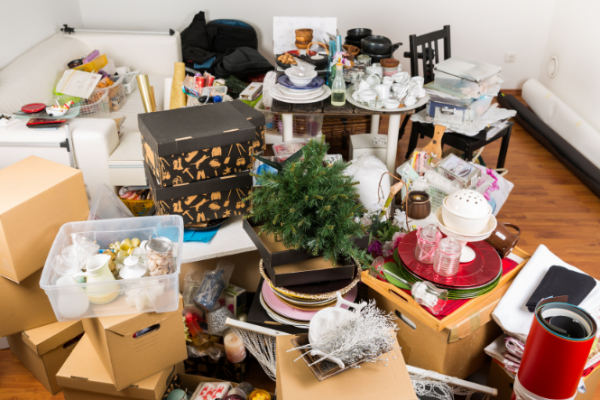Are you an NZ-based healthcare provider? Did you know we have a whole section on Healthify just for you, to assist in improving healthcare planning, delivery and outcomes?
Hoarding – how to help a hoarder
Key points about how to help a hoarder
- Are you worried about someone you know or love who is a hoarder?
- Hoarding can seriously affect a person’s daily life.
- Hoarding disorder is defined as a persistent difficulty discarding or parting with possessions due to a perceived need to save them. It can range from severe to mild.
- In severe cases, hoarding creates unsafe and unhealthy living conditions.
- Here are some tips to help a hoarder.

1. Be supportive
Let the person you want to help know you are there for them, that you care and will help them with whatever support they need. Approach them with compassion and understanding, not judgement. Encourage them to seek professional help if needed.

Image credit: Canva
2. Write down some goals
Encourage the person to come up with some goals. For example: clearing the kitchen table or hallway or cleaning out their wardrobe. Then suggest they write their goals down – this helps them to visualise their goals and focus on achieving them.
3. Be patient
People with hoarding disorder may not see it as a problem and be resistant to change. Be patient and don’t expect them to change overnight.
4. Don’t take over
Don’t touch, move or throw things out for them without their permission. It may be tempting, but it could upset them and cause them to shut you out and not accept any help at all. Tidying up against someone’s wishes or behind their back can make things worse.
5. Respect their decisions
It may be hard to understand why they are keeping certain things but remember the items they are hoarding feel important to them. Try not to describe the items as junk or rubbish.
6. Don’t add to the pile
Try not to add to the pile by giving birthday or Christmas presents. Instead, a voucher for an outing, meal out or a show is a good alternative.
7. Celebrate the small things
Be super encouraging if they achieve what seems like a small step. Even if they clear out a small space such as a draw or table give them credit for their achievement.
If you’re concerned about someone’s hoarding behaviour, or your own, please contact your GP or healthcare provider for more information and support.
References
- Hoarding disorder(external link) Mayo Clinic, US
- Hoarding(external link) Mind, UK
- How to help a hoarder(external link) Attitude Mag, US
Credits: Healthify Editorial Team. Healthify is brought to you by Health Navigator Charitable Trust.
Page last updated:





